Cambridge University heart screening fundraiser after sudden death
- Published
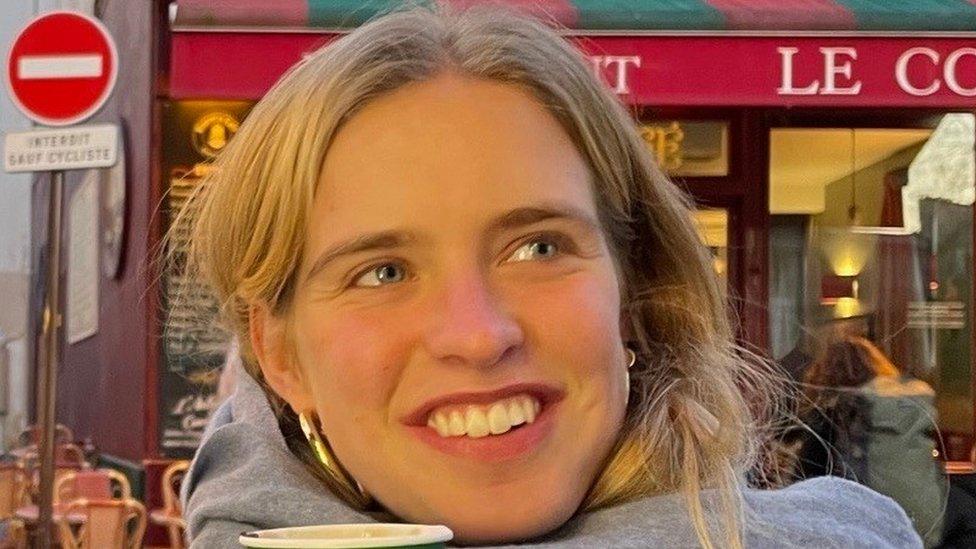
Clarissa Nicholls was working in Paris during her third year of a four-year languages course when she died
Friends of a Cambridge University student who died from a sudden cardiac arrest have raised more than £15,000 to fund electrocardiogram (ECG) screening.
Languages student Clarissa Nicholls was 20 when she collapsed and died while hiking in France in May 2023.
The keen athlete was later found to have a life-threatening condition - arrhythmogenic cardiomyopathy - that had not been spotted by doctors.
Friends and family hope to introduce ECG screening as her "lasting legacy".
Miss Nicholls was studying French and Italian at Trinity Hall and was abroad in her third year, as part of her four-year degree.
She had been working for a publishing company in Paris and just days before her 21st birthday took a hike in the Gorges du Verdon with her flatmate.
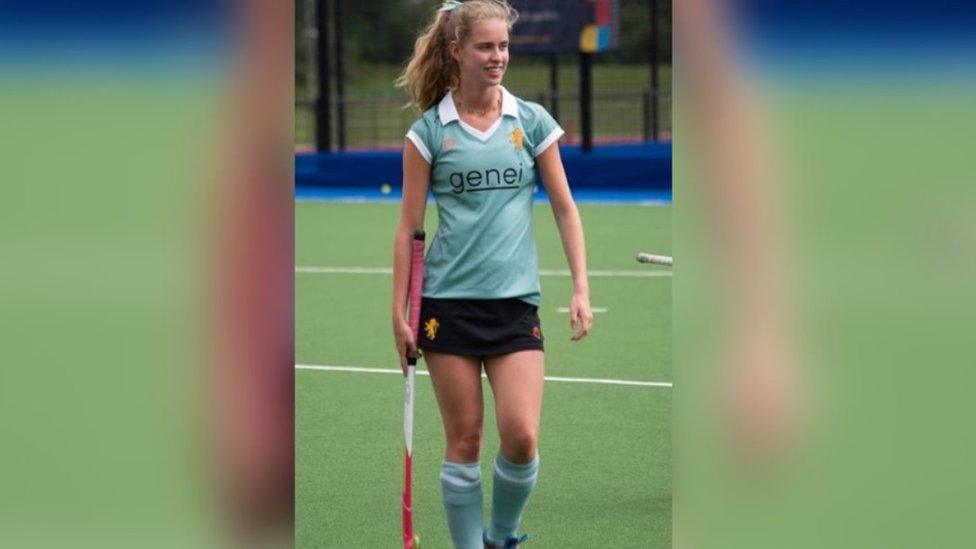
Clarissa was a keen runner and played hockey for the university
They had been swimming in a lake, had a picnic and continued hiking when suddenly her friend heard Miss Nicholls say, "Oh no", and she collapsed.
Nearby hikers - one of whom was trained in first aid - rushed to help, performing CPR before an air ambulance arrived at the remote spot.
But it was too late.
After Clarissa's death, her family, from Wandsworth, London, threw themselves into raising awareness of heart conditions in young people, and raising funds for ECG screening, external for others with undiagnosed issues.
The only sign that could have pointed towards this was missed, her mother, Hilary Nicholls, 52, said.

Clarissa "was the most energetic and dynamic of her friends", her mother said
"A year before [she died], Clarissa was playing spikeball and fainted," she said.
"Friends called an ambulance and she went to hospital but everything looked normal. We paid for a private MRI scan of her brain but that was also normal and so she got right back into the swing of things.
"After she died, we discovered she had a heart condition. As a mum, I feel so guilty about this - for not knowing about it."
A cardiologist reviewed the results of the ECG scan taken a year before and told the family he could clearly see an abnormality on it.
"Her life would have been totally saveable," Mrs Nicholls said.
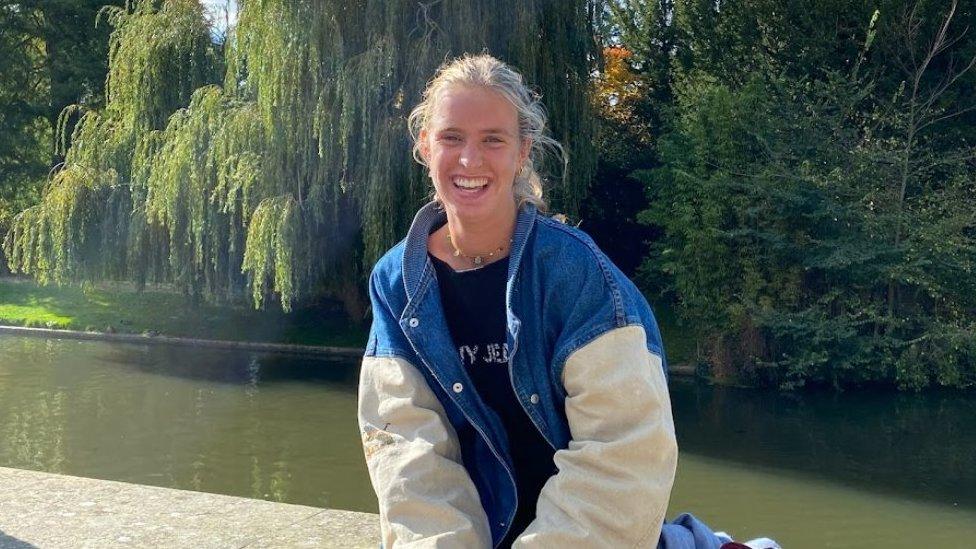
Clarissa was photographed here during Fresher's Week at Trinity Hall in 2020
Friends and family have raised more than £100,000 in Clarissa's name, working closely with the charity Cardiac Risk in the Young, external (Cry).
Much of this will be channelled into the campaign to start regular ECG screenings at the university.
Clarissa's twin brother 21, and younger brother, 20, plus a number of friends will be adding to that total when they run the London Marathon on Sunday.

How common are such heart conditions?
Every week in the UK, about 12 young people under the age of 35 die suddenly from a previously undiagnosed heart condition
80% of sudden arrhythmic death syndrome (Sads) deaths occur at rest or during sleep
Sport - while it does not cause sudden cardiac death - can significantly increase a young person's risk if they have an underlying condition
In the month following the collapse of Bolton Wanderers' midfielder Fabrice Muamba in March 2012, Cry had as much interest in its screening programmes as it would usually get in a whole year. This was echoed after the collapse of Denmark's Christian Eriksen during Euro 2020
One in every 300 young people that Cry tests will be identified with a potentially life-threatening condition
In 1982, Italy introduced mandatory screening for all young athletes taking part in organised sport. A 25-year study of the programme showed an 89% drop in sudden cardiac deaths in athletes, from 3.6 per 100,000 to 0.4 per 100,000
Source: Cardiac Risk in the Young (Cry)

After Mrs Nicholls approached her daughter's friends at Cambridge University, a new campaign gained momentum.
Students Jessica Reeve, 22, studying for a Master's degree in economics and Izzy Winter, 21, in her final year studying French and Italian, were close friends of Clarissa.
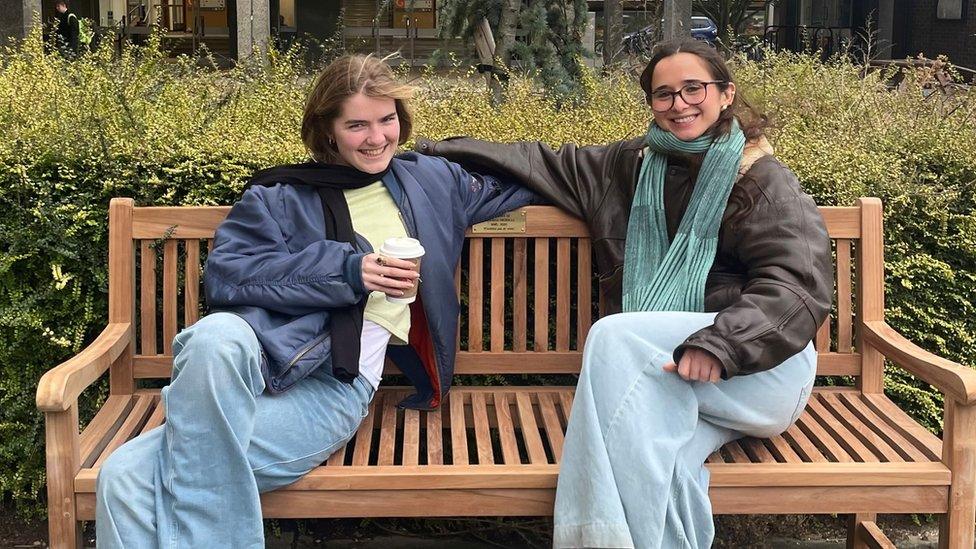
Jessica Reeve (l) and Izzy Winter (r) sitting on "Clarissa's bench" in Cambridge
"She was the perfect figure of health and that's what's so frightening about what happened," said Ms Winter.
Together, they started fundraising through GoFundMe for Clarissa's Campaign for Cambridge Hearts.
The goal was to raise £7,000, which would pay for one day of ECG screening for about 100 young people.
But it quickly reached that target - and now they have more than enough for two days, and the funds are steadily growing.

Izzy Winter went on a trip to Florence with her friend Clarissa, as part of their language studies
"It's gained so much momentum, we're just keeping going," said Ms Reeve.
"It's really hard losing such a close friend and coming back to a space where someone is missing.
"But, through this, I can talk really positively about someone who had an amazing life. Doing this is a way of channelling that love."
Ms Winter said: "It's a tangible way of showing our love for Clarissa - it's a service she deserved - one we all deserve, and the hope is this can be rolled out more widely to other universities and communities."
Earlier this year a memorial bench was installed at the university's Sidgwick Site.
"Clarissa's bench" was funded mainly by the Faculty of Modern and Medieval Languages and Linguistics. A bronze plaque bears the words: "In memory of Clarissa Nicholls. N'oubliez pas de vivre."
"It means don't forget to live your life - and Clarissa definitely knew how to live," said Ms Reeve.
Clarissa's mother has been working closely with Cambridge University Sports Club and plans are in place for screening sessions in the autumn and early next year.
"Each day about 100 people can be screened and the results checked by an expert cardiologist - which is critical," said Mrs Nicholls.
"We want to make four days of screening each year a legacy in Clarissa's memory and I want Cambridge to be a beacon of best practice for other universities across the country."

Clarissa died on 7 May 2023 - she would have turned 21 a week later on 15 May
Nick Brooking, the university's director of sport, said: "Clarissa's friends and family have been doing an amazing job in raising funds and profile for this great cause and we will continue to work with them to try and broaden the testing opportunities for more young people."

Follow East of England news on Facebook, external, Instagram, external and X, external. Got a story? Email eastofenglandnews@bbc.co.uk, external or WhatsApp 0800 169 1830
- Attribution
- Published19 June 2021

- Attribution
- Published13 June 2021

- Attribution
- Published4 October 2016
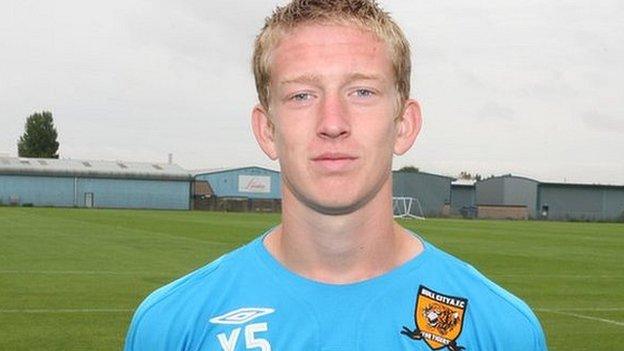
- Published16 August 2012

- Published18 March 2012